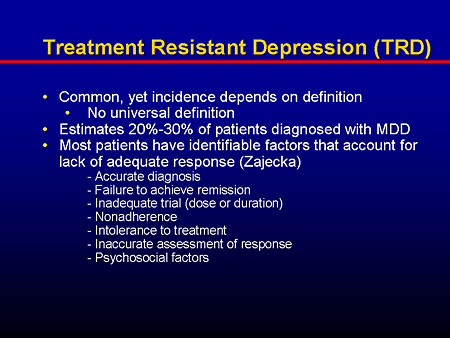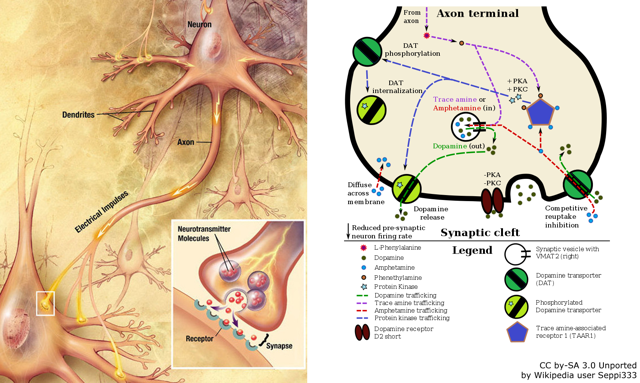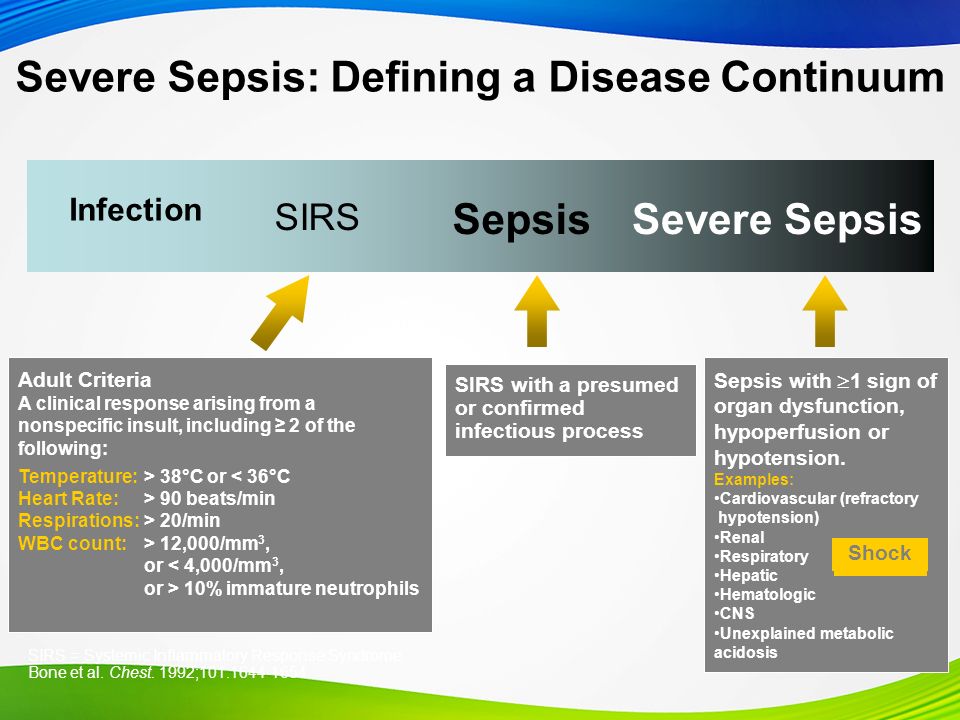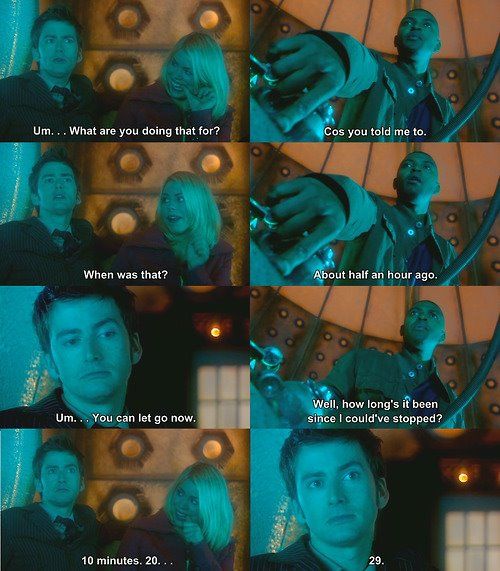Does my girlfriend have bpd
Signs You Might Be Dating Someone with BPD
Dating can be a complex and tricky endeavor. Relationships require work, compromise, communication, empathy, and understanding. Things become even more complicated if you are dating someone with Borderline Personality Disorder (BPD).
While the beginnings of a relationship with someone who has Borderline Personality Disorder might take you to the greatest euphoric heights imaginable, it can also take you to the lowest lows. Knowing what to look for can help you to better maintain a relationship with someone with BPD.
According to Romeo’s Bleeding by Roger Melton, M.A., there are three distinct phases of being in a relationship with someone who is afflicted with Borderline Personality Disorder:
- The Vulnerable Seducer Phase: This phase depicts the person with Borderline Personality Disorder as a “victim of love.” They will use their previous experiences to denote a feeling or desire to be saved, noting how you are the only one who understands them.
You’re “special” because you really “know” them, and this can feed into your empathy and your ego. The person with BPD can make you feel loved, needed, wanted, and elated because they want your attention, but also want to make you the center of their world. Things move at a whirlwind pace, almost too quickly, and you might find yourself in an intense relationship before you’re even ready.
- The Clinger Phase: As the person with Borderline Personality Disorder becomes more attached to you, you will notice changes over time. They may seem small at first, but they will slowly become apparent. Sure, your partner will be interested in you, but may no longer be interested in what you’re interested in. They’ll use physical and emotional ailments to keep your focus entirely on them, and their mood can start to swing suddenly, from euphoric highs to depth-defying lows. They’ll still think you can save them though, and use this to keep an emotional tether to you, putting their entire emotional and physical well-being in your hands.

- The Hater Phase: This is the last of Melton’s phases, and the most caustic one. During the first two phases, the hater won’t appear much as the person with Borderline Personality Disorder tries to maintain their best behavior. But as your relationship continues, you’ll notice the smallest thing will set them off — a look, a word, a touch. Their mood swings will become even more extreme and noticeable now, and all of their pain and suffering will be blamed on you, once again feeding the victim mentality.
Those phases are anecdotal in nature, but give a picture of what going through a relationship with someone who has Borderline Personality Disorder might be like. Before it gets that far, however, here are some things you can look out for to see if your partner has BPD and if they need help:
- Excessive Mood Swings: Is your partner overly excited one day, only to be followed by a deep bout of depression the next? This could be characterized by extreme changes in opinion, such as one day everyone loves them, the next day everyone hates them.

- Excessive Behavior: Going along with the mood swings, does your partner engage in compulsive behavior, such as lavish spending sprees for no particular reason, impulsive needs to go on sudden trips, or even bouts of self-harm? The mood swings that occur in someone who has BPD can cause them to engage in a number of destructive behaviors, from spending to adultery to drug use, and even worse.
- Quick to Feel Abandoned: Does your partner feel intense abandonment at the slightest hint of you being late, or not being able to make an appointment? Are they quick to blame you for hurting them, or accusing you of ruining their day/week/life because of their intense feelings of abandonment at the slightest provocation?
- Intense Absolutes: Does your partner exhibit feelings that people or situations are completely right or completely wrong, with no in between? If you do something your partner perceives as wrong, are you suddenly the worst villain in the world, only to be the biggest hero the next day for doing something they perceive as right?
These are just some of the warning signs that you might be dating someone with Borderline Personality Disorder. If you feel your partner has BPD, encourage them to get BPD treatment. Treatment for Borderline Personality Disorder varies for each person, but with the right amount of care, work, dedication, and love, your relationship can even survive BPD.
If you feel your partner has BPD, encourage them to get BPD treatment. Treatment for Borderline Personality Disorder varies for each person, but with the right amount of care, work, dedication, and love, your relationship can even survive BPD.
Signs Your Girlfriend Has Borderline Personality Disorder
Surely, everybody has their own quirks. As their couple, we learn to love it and embrace it. This is what makes a relationship strong. But actually, those quirks are not always normal.
A borderline personality disorder is a mental illness where someone is unstable in their moods, relationship and behavior. Often, you will see some creepy signs that makes them uncovered. Here are the shocking signs your girlfriend has borderline personality disorder;
Contents
- 0.1 1. Feeling Like The Relationship Is Meaningless All Of A Sudden
- 0.2 2. Finding No Purpose To Life All Of A Sudden
- 0.3 3. Snapping At The Little Things
- 0.4 4. Being Sad For No Reason At All
- 0.
 5 5. Changing Their Behavior To Extremely Happy
5 5. Changing Their Behavior To Extremely Happy - 0.6 6. All Of A Sudden Feeling Scared
- 0.7 7. In A Perpetual State Of Anxiety And Unbalance
- 0.8 8. Never Trusting That You Love Them Enough
- 0.9 9. Always Feeling That The People That Love Them Will Soon Abandon Them
- 0.10 10. Having An Extreme Passion That Is Poured To Their Relationship
- 0.11 11. The Ups And Downs In The Relationship Are Changing Too Quickly
- 0.12 12. Can Change Her Feelings Towards You In An Instant
- 0.13 13. Can Suddenly Leave You
- 0.14 14. Not Being Able To Explain Clearly Why She Is The Way She Is
- 0.15 15. Pushing Your Limits On Purpose
- 0.16 16. Taking Extreme Risks On Puprose
- 0.17 17. Feeling A Sudden Feeling Of Low Self Esteem
- 0.18 18. Attempting To Hurt Herself Repeatedly
- 0.19 19. Having Extremely Weird Relationships In The Past
- 0.20 20. Many People Find Her Weird
- 0.21 21. Desperately Wanting You To Stay
- 0.
 22 22. Extreme Contact With You
22 22. Extreme Contact With You - 1 More Ways To Know That She Is Different
- 1.1 1. She Is Very Impulsive
- 1.2 2. She Often Says That She Doesn’t Know Who She Is
- 1.3 3. Often Spacing Out From Reality
- 1.4 4. Changing Her Way Of Life A Lot In The Past
- 1.5 5. Being Really Jealous
- 1.6 6. Starting Fights Out Of Nowhere
- 1.7 7. Physically Clinging To You
- 1.8 8. Stalking Your Move
- 2 Tips On How To Deal With This Behavior
- 2.1 1. Be Patient
- 2.2 2. Ask Her To Get A Professional Help
- 2.3 3. Take Time For Yourself
- 2.4 4. See Through Her Illness
1. Feeling Like The Relationship Is Meaningless All Of A Sudden
Extreme sense of emptiness will come to this girl’s life meaning that they will suddenly not find the purpose in the relationship.
2. Finding No Purpose To Life All Of A Sudden
This lack of motivation is pushed to the extreme because of her condition.
3. Snapping At The Little Things
Even little things can make her really outraged. Even often hurting other people or showing a hint of craziness.
4. Being Sad For No Reason At All
One of the characters of borderline personality disorder is sudden change of mood which is shown by the sudden sadness.
5. Changing Their Behavior To Extremely Happy
After a silence or a negative emotion, they can suddenly be extremely happy which can be creepy.
6. All Of A Sudden Feeling Scared
Feeling scared of everything is a normal thing with someone that have this kind of condition.
7. In A Perpetual State Of Anxiety And Unbalance
It feels like the world is always coming to get you and always changing which means that they are always in a state of anxiety.
8. Never Trusting That You Love Them Enough
She feels like you are always ready to up and leave her anytime soon. Because of this, no love that you show her is enough.
9. Always Feeling That The People That Love Them Will Soon Abandon Them
The tell tale signs your girlfriend has borderline personality disorder is an extreme fear of abandonement.
10. Having An Extreme Passion That Is Poured To Their Relationship
She will clearly show you the How To Tell Someone You Love Them Without Saying I Love You Over Text passionately.
11. The Ups And Downs In The Relationship Are Changing Too Quickly
Your relationship will be going up and down and it will not make sense.
12. Can Change Her Feelings Towards You In An Instant
One second she can love you a lot and another second she can hate your guts. This is not because of you but because of her illness.
13. Can Suddenly Leave You
Impulsive and indescribable things will happen like suddenly leaving you.
14. Not Being Able To Explain Clearly Why She Is The Way She Is
Because her illness lead her to do this, she don’t know why she act the way she does.
15. Pushing Your Limits On Purpose
Pushing your boundaries and making you angry is done by her without a reason why.
16. Taking Extreme Risks On Puprose
Risks like bungee jumping or even something more extreme will be done impulsively.
17. Feeling A Sudden Feeling Of Low Self Esteem
A feeling of emptiness can also be applied to their self esteem. That is why you need to show her the Ways to Love Yourself and Be Happy with The World.
18. Attempting To Hurt Herself Repeatedly
Self hurt is a common theme with a girl like this. That is why you need to pay attention to her.
19. Having Extremely Weird Relationships In The Past
The relationships in the past are all weird and destructive because of who she is.
20. Many People Find Her Weird
Many people confirm your doubt to her.
21. Desperately Wanting You To Stay
She do things that shows how desperate she is.
22. Extreme Contact With You
Contacting and texting you will be done in an extreme way.
More Ways To Know That She Is Different
Not everyone can diagnose borderline personality disorder quickly but your girlfriend might have it. You need to know it fast to do something about it. Here are more ways to know that she is different;
1. She Is Very Impulsive
Impulsiveness is a sign of this illness.
2. She Often Says That She Doesn’t Know Who She Is
Not knowing who she is will be done by her.
Do you feel like he kind of takes you for granted?
Unfortunately this is one of the most frequent complaints we get from our readers, where they feel they aren't a priority for their boyfriend or husband. They always seem to have some excuse as to why they can't spend some quality time with you like they used to.
To see if he actually likes you take this quick free quiz and we'll let you know if it's worth putting any more time into this guy.
3. Often Spacing Out From Reality
Disconnection from reality is something that will happen to her.
4. Changing Her Way Of Life A Lot In The Past
She often change her way of life because she doesn’t know who she is.
5. Being Really Jealous
She thinks that you show the Signs He is Player.
6. Starting Fights Out Of Nowhere
Because of her mood swings, fights will pop up out of nowhere.
7. Physically Clinging To You
Her extreme fear of abandonement might lead her to physically blocking your way out.
8. Stalking Your Move
Stalking is the Signs You Are A Psycho Girlfriend.
Tips On How To Deal With This Behavior
You might not be accustomed on what to do with a girl that have this kind of behavior. This is why you need to prepare yourself with the tips on how to deal with this behavior;
1. Be Patient
This is not who she really is. You need to be patient with the symptomps that she is showing because she doesn’t do this on purpose.
2. Ask Her To Get A Professional Help
The best cure to a problem like this is truly a professional help and medication to truly change her.
3. Take Time For Yourself
Taking care of a problem like this can absoulutely drain you. Find a time to relax and get out of the problem for a second.
4. See Through Her Illness
It helps to believe that she is not who she is right now but a better person behind the illness.
It’s not common to have a girlfriend that have the signs your girlfriend has borderline personality disorder. All you need to do is to relax and do the tips that we have provided you. After that, you will have a normal life and a normal relationship.
Does it feel like pulling teeth getting him to say how he feels about you?
Some men can be very guarded and closed when it comes to expressing how they feel - it can almost feel like they are pulling away from you and leaves you wondering whether he's actually into you.
Find out to see whether he actually likes you by taking this quick free quiz
How to live with borderline personality disorder
Daria Batyrshina
lives with BPD
Author profile
I couldn't get a correct diagnosis for several years, and then it completely changed my life.
To describe borderline personality disorder, or BPD, the well-known saying of psychologist Marsha Linehan is perfect: “These people simply don't have 'emotional skin'. Even the slightest touch or movement can cause the most severe suffering.”
Share my path to getting the correct diagnosis, symptoms, and tips for dealing with people with BPD.
Go see a doctor
Our articles are written with love for evidence-based medicine. We refer to authoritative sources and go to doctors with a good reputation for comments. But remember: the responsibility for your health lies with you and your doctor. We don't write prescriptions, we make recommendations. Relying on our point of view or not is up to you.
What is borderline personality disorder
Borderline personality disorder is characterized by permanent changes in mood, self-image and behavior. This can lead to problems in relationships with other people and impulsive actions of all kinds.
BPD - Mayo Clinic
BPD - National Institute of Mental Health, USA
In the International Classification of Diseases 10th Revision, or ICD-10, there is in fact no diagnosis of "borderline personality disorder", there is an emotionally unstable personality disorder, which two types: borderline and impulsive. In ICD-11, this is already a separate diagnosis, which is called borderline personality disorder.
In ICD-11, this is already a separate diagnosis, which is called borderline personality disorder.
The disorder has several main features.
So what? 01/12/22
Transition to the new International Classification of Diseases has begun in Russia: what will change and when
Self-injurious and risky behavior. For example, a person may injure themselves or use psychoactive substances - borderline disorder increases the risk of developing various addictions.
Black and white thinking: it seems to a person that there can only be good and bad, there are no halftones.
Criteria for diagnosing BPD - Medscape
Problems with self-esteem. People with this disorder are overly sensitive to the opinions of others, enter into dependent relationships, have a strong fear of being alone, and may take desperate actions to keep a loved one or get their attention.
The manifestations of borderline personality disorder are similar to those of adolescence: outbursts of anger, mood swings, aloofness, so this diagnosis is made after 18 years.
What are the symptoms of borderline personality disorder
Alexey Pribytkov
psychotherapist, psychiatrist, Ph.D. It happened.
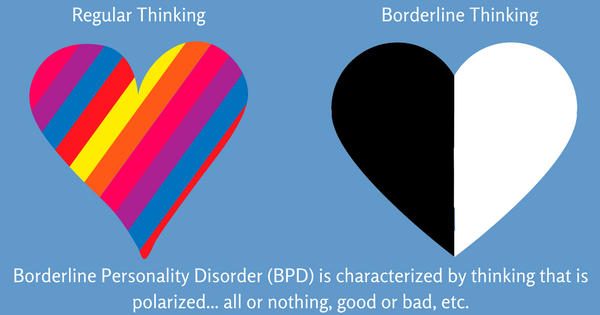 For example, the partner did not respond to the message.
For example, the partner did not respond to the message. Why borderline personality disorder develops
Why borderline personality disorder develops is not exactly known.
NHS
Biological factors. There is evidence that the development of personality disorders, including BPD, may depend on genetic factors.
BPD may also be associated with changes in some parts of the brain responsible for controlling emotions. Its development can be affected by disturbances in the functioning of the system of neurotransmitters - compounds with the help of which brain neurons communicate with each other, in particular serotonin.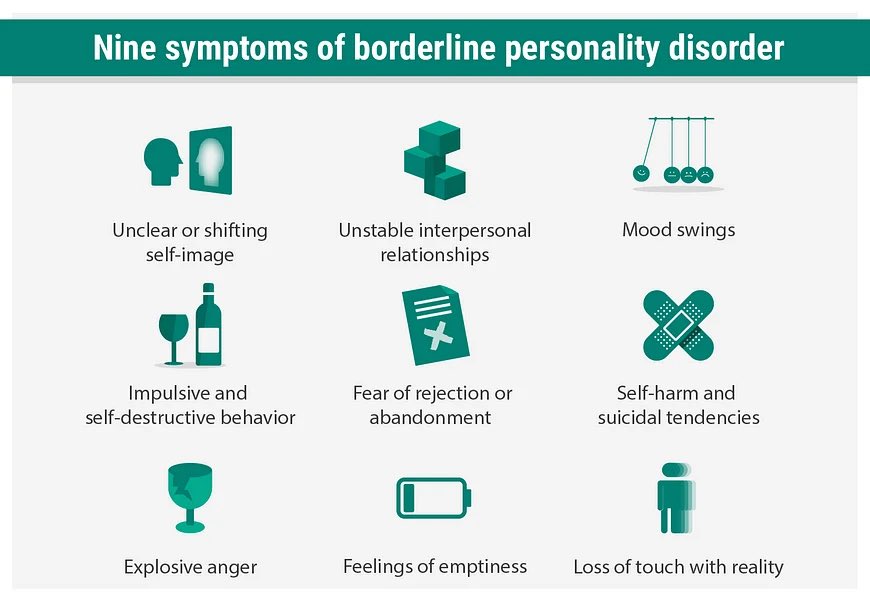
Social factors. For example, unstable relationships with significant adults, lack of love in childhood, neglect by parents, loss of a loved one.
Emotional or physical abuse, as well as intense fear experienced in childhood, greatly increase the risk of any psychological problems. In this case, BPD can be combined with another diagnosis - post-traumatic stress disorder, or PTSD. It is manifested by constant frightening memories of a traumatic event and increased anxiety. The more unstable the environment around and the more traumatized the child, the more likely it is to get PTSD.
How I treated depression and anxiety for several years
I first saw a doctor almost eight years ago. I had an eating disorder - it often accompanies BPD, but I didn't know about it yet.
My gastroenterologist at some point realized that my constant pains in the abdomen were most likely connected not with physical problems, but with mental ones. My mother took me to a government clinic, where I came across incompetent doctors.
/eating-disorders/
How to cure eating disorders
The psychiatrist said that I have anorexia, I look terrible and I won't be able to find a partner because "men don't throw bones." Then I realized that it was not worth waiting for help from him.
I dealt with eating disorders myself, having gone through all the stages from anorexia to bulimia and compulsive overeating in two years. After solving the problem with food, depression came. Here, I couldn't manage on my own.
My days were similar to each other: constant fatigue, apathy, I didn’t even have enough strength to eat and brush my teeth, and there was only fog in my head and no thoughts. My circle of contacts narrowed greatly, because those around me saw only aggression or received no answers at all. So several years passed, then I realized that I needed help.
On the Profi-ru website, I found a psychologist who lived next to me. Then I did not yet know how psychiatrists differ from psychologists and psychotherapists, so I did not receive the necessary help.
/psychotherapy-search/
How to choose a psychotherapist
Psychologists usually do not work with mental disorders, besides, in the sessions I just told what was bothering me, there was no other support. Sometimes I couldn't find words and we just kept silent.
I went to the specialist for about a month and paid 1300 R for each meeting. In total, we held nine meetings. The only thing I got was the fog left my head. Despite my condition and the fact that the psychologist could not do anything about it, she persuaded me to stay in therapy. She said that it helps, although I did not feel any relief.
11,700 R
I spent on a psychologist who did not help me
As a result, I did not want to spend more money on myself and lost confidence in doctors. Then I learned that in Moscow you can get free psychological help at the Moscow Service for Psychological Assistance to the Population.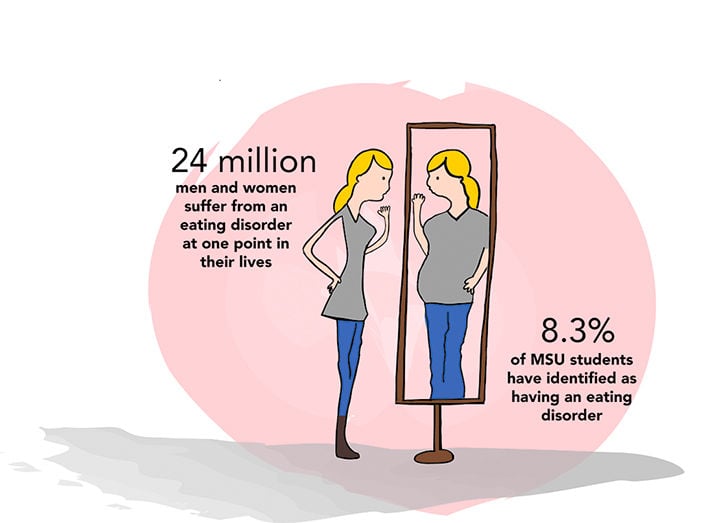
Moscow Service for Psychological Assistance to the Population
I had to wait there for an appointment, but I had nowhere to hurry. About six months later, I was able to get to a psychologist. I told her what worries me - at that time they were symptoms of depression and apathy. She immediately said that I should talk to a psychotherapist, and I made an appointment with another specialist in the same clinic.
The psychotherapist referred me to a psychiatrist, suggesting several doctors she trusts. She said that I most likely had depression and needed medication. Psychiatrists are not accepted at MSPPN, so I went to a private clinic, where I had to pay 4000 R for an appointment.
The amount of free assistance in the ISPP is limited, but it is enough to get started. Source: MSPPN A psychiatrist at a private clinic diagnosed me with depression, prescribed an antidepressant and a tranquilizer. I was lucky that my doctor saw not only in a private clinic, but also in a state one, so I went to all subsequent appointments for free.
The second time I managed to find the right medicines. We fixed the changes not only with the help of conversations. The psychiatric clinic had a simulator on a computer, where the patient was asked to pass several tests: attentiveness, reaction speed, the ability to distinguish faces, and much more. I took tests at intervals of about once a month.
This testing is not necessarily and does not always reflect the effectiveness of the treatment, but I liked that the results got better every time. At that time, about 1,500 R per month was spent on medicines.
/list/antidepressant-myths/
8 myths about antidepressants
During the same period, I tried cognitive behavioral therapy. In a year I started and quit three times, nothing worked out for me. The mood diary was empty, because I do not distinguish between emotions, the diary of situations that concern me and their analysis, too. I did not understand why this or that situation became important to me.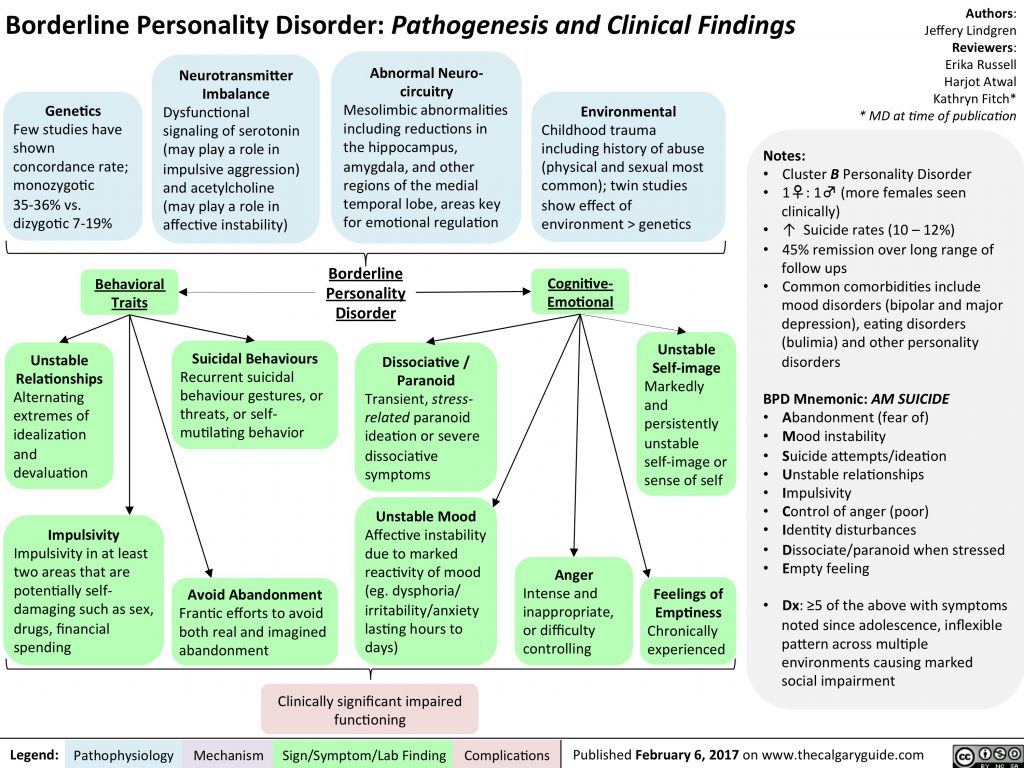 In total, I had five meetings with a psychotherapist, the cost of one was 3000 R.
In total, I had five meetings with a psychotherapist, the cost of one was 3000 R.
At that time, the doctor and I did not yet know that I had more than just depression with panic attacks and anxiety, so we did not follow my emotions and feelings much, which is important in BPD.
At some point, I abruptly stopped taking the prescribed pills and coped with the withdrawal syndrome for another week. I refused the pills, because it seemed that I could manage without them, besides, they helped for a short time, then everything started all over again.
/panic attack/
How to cope with a panic attack: recommendations from a psychotherapist
A month or two after the withdrawal, I felt fine and even started to exercise. Then anxiety and depression symptoms returned, I suffered for a few more months and went to a new doctor.
Over the next one and a half to two years, I changed three doctors in one private clinic, I was prescribed different types of medicines in different combinations and dosages. Primary appointments cost 4000-5000 R, repeated - 2400 R. I went to psychiatrists once a month to control my condition. I bought medicines either generics or original ones, they spent about 2000-3000 R per month.
Primary appointments cost 4000-5000 R, repeated - 2400 R. I went to psychiatrists once a month to control my condition. I bought medicines either generics or original ones, they spent about 2000-3000 R per month.
The pills made me feel better for a short time, about a month. During this period, I was already diagnosed with "emotional personality disorder", but they did not tell me about it. I later found out from the medical record, which I requested before changing the clinic.
At the same time, I also turned to Gestalt therapy for help - this is one of the areas of psychotherapy aimed at developing self-awareness. For me, the sessions were an opportunity to cry, acknowledge problems, and receive support. For three months, I called a psychologist every two weeks. One session cost 2000 R.
107,100 R
I spent on specialists before I was given the correct diagnosis
I spent on treatment before the correct diagnosis was made 177,100 R
| Expenses | |
|---|---|
| Medicines in the last two years of treatment | 55 000 R |
| Regular visits to psychiatrists | 50 400 R |
| Drugs in the first year of treatment | 15 000 R |
| Cognitive behavioral therapy, 5 sessions | 15 000 R |
| Three initial appointments with the following psychiatrists | 14 000 R |
| Gestalt therapy sessions, 6 sessions | 12 000 R |
| Psychologist sessions with "Profi-ru" | 11 700 Р |
| First psychiatrist appointment | 4000 R |
Medicines in the last two years of treatment
55 000 R
Regular visit to psychiatrists
50 400 R
Medicines in the first year of treatment
15 000 R
Cognitive-behavioral therapy, 5 sessions
15 000 P
Three initial appointments with the following psychiatrists
14,000 R
Gestalt therapy sessions, 6 sessions
12,000 R
Psychologist sessions with Profi-ru
R 11,7000002 Appointment of the first psychiatrist
4000 Р
How borderline personality disorder is diagnosed
Alexey Pribytkov
psychotherapist, psychiatrist, candidate of medical sciences
There are no specific studies in psychiatry that would help to make a diagnosis. In the first place is always the clinical picture, that is, manifestations of mental disorders.
In the first place is always the clinical picture, that is, manifestations of mental disorders.
There is an interesting story with borderline personality disorder in Russia. We still use the International Classification of Diseases of the 10th revision, where in fact there is no such diagnosis, which means that for a long time it was out of sight of psychiatrists. But the absence of a diagnosis in the classification does not mean the absence of violations, because more than 30 years have passed since the adoption of the ICD-10 - it was adopted by WHO in 1990 - and the understanding of mental disorders during this period has noticeably changed.
Now many modern doctors are guided by other criteria when making a diagnosis. They are most clearly formulated in the American classification of psychiatric disorders DSM-5. Similar criteria are used in ICD-11, which is adopted by WHO and should come into force in Russia in 2024.
The nine criteria that are specific to BPD are listed above. The task of the psychiatrist is to identify them during a conversation with the patient. The basis for the diagnosis of "borderline personality disorder" is the presence of at least five of the nine criteria.
The task of the psychiatrist is to identify them during a conversation with the patient. The basis for the diagnosis of "borderline personality disorder" is the presence of at least five of the nine criteria.
How I was correctly diagnosed and treated
After many unsuccessful attempts at treatment, I decided to change doctors again and went to a new psychiatrist at another clinic. The first appointment there cost 7,000 R, and repeated appointments cost 6,000 R.
The drug treatment was corrected for me. And with the final diagnosis, they rushed between bipolar affective disorder, or BAD, and borderline personality disorder.
/bipolarnoe-rasstroystvo/
How much does it cost to treat bipolar affective disorder
They are similar in symptoms. BAD also occurs with alternating periods of depression and high spirits, but they are usually long and can last several months.
In BPD, periods of different moods change over several hours, less often over several days, that is, the mood is constantly unstable. Moreover, these two disorders can occur simultaneously in one person.
Moreover, these two disorders can occur simultaneously in one person.
As a result, the psychiatrist diagnosed me with borderline personality disorder. Now, once every one and a half to two months, I go to him to monitor the condition.
Since that time, I began to go to schema therapy - this is a therapy focused on making a person change their behavior patterns. I go to a psychotherapist every week, one session costs 6000 R. I feel that it helps me.
BPD - MSD Handbook
My maladaptive patterns of behavior that my therapist and I identified at our first meeting. In the lower left corner are the schemes to be achieved It is difficult to treat BPD. My doctors never know in what condition I will come to them and whether I will come at all. Meetings are held online from time to time. I am often late, I call specialists from different places: it can be a park or my workplace, a stop on the street or someone else's apartment, a noisy highway or a food court. Sometimes I don't want to see my doctor because it seems that he is wrong about everything.
I used to feel disgusted and decided that I needed another doctor: I abruptly go from idealizing a person to hating him. For this reason, many doctors refuse patients with borderline disorder. In addition, people with BPD tend to discount their own problems, so many may not seek help for a long time.
/list/antidepressant-facts/
10 things to know before taking antidepressants
Over the years, I have developed several rules for choosing a doctor for myself:
- At the reception, they listen to me attentively.
- Everything that I consider important is important to a doctor. He should not wave his hand and say that there is no point in talking about something.
- The doctor speaks honestly about the diagnosis, does not hide anything, describes the treatment regimens.
- I am informed about the drug I will be taking. They explain exactly how it works, why it was prescribed, what side effects.
- If I don't like something, I change doctors.
Unfortunately, there are no rules that help fight mood swings. I try to turn to the facts at such moments and tell the doctors how I feel. Psychiatrists, as a rule, treat the frequent change of doctor normally. I have never faced condemnation.
One of the latest treatment regimens My prescriptions for drugs, there are a lot of them due to different dosagesHow borderline personality disorder is treated
Alexey Pribytkov
psychotherapist, psychiatrist, PhD in medicine
The main method of treating borderline personality disorder is psychotherapy. It is necessary to achieve a stable result. Medications only alleviate some of the symptoms of the disorder.
Dialectical Behavioral Therapy, or DBT, has the most evidence of effectiveness in treating BPD. Other directions can be applied: schema therapy, transference focused therapy - TFP.
However, medications are also prescribed for most BPD patients. Three groups of drugs are usually used:
Three groups of drugs are usually used:
- Mood stabilizers, or mood stabilizers, are drugs that smooth out emotional fluctuations and help maintain an even mood.
- Antidepressants - they help reduce the severity of emotional instability. BPD often accompanies depressive and anxiety disorders, obsessive-compulsive disorder - antidepressants are also used to treat them.
- Antipsychotics, or second generation antipsychotics, are prescribed in low doses to correct impulsivity and aggression.
The choice of treatment regimen depends on the symptoms of the individual patient. Drug therapy usually lasts at least a year, more often several years.
How do I deal with borderline personality disorder
Insomnia. I have suffered from sleep problems since childhood. I tried everything: from hot milk at night to being very tired during the day.
Unfortunately, I don't have a universal solution to this problem. I only save myself with pills: psychiatrists prescribed tranquilizers for sleep, now I have an antidepressant with a strong sedative effect - or I just don’t sleep.
I only save myself with pills: psychiatrists prescribed tranquilizers for sleep, now I have an antidepressant with a strong sedative effect - or I just don’t sleep.
/insomnia/
How to deal with insomnia
Anxiety and panic attacks. It often overtakes unexpectedly and at the most calm moments. Just talking to a friend, I can start twitching my leg, nervously breaking my nails, scratching my skin with my nails, or sticking to my phone. This is also manifested by a rapid heartbeat, trembling in the body, a desire to move, and strong fear.
To get rid of this feeling, I knit, switch to TV series, listen to meditation practices, start moving more, turn to metaphorical associative cards or Tarot. Metaphorical associative cards are cards with pictures that you can interpret based on your experience.
I use cards when my anxiety is about the future. I am extremely afraid of uncertainty, and this is a chance to decide at least a little, albeit somewhat irrational.
Feeling alone and abandoned. Feels like an unfilled hole in the chest. At such moments, I am sure that I have no one to turn to, no one will help. The feeling that I am alone in the whole world.
Saves background noise such as a movie or TV series. I also have three cats that periodically ask for attention, and I am no longer alone. During periods when I feel very lonely, my friends help, who, if they cannot come, then at least call or write.
Sometimes, in order to feel that I am not alone, I look for meetings with different men. I tend to dive into the person who gives me attention, as if I'm trying to close the inner "hole". If I don’t get enough attention, then I show aggression, and subsequently I change the “victim”. I'm trying to deal with this with the help of psychotherapy.
Mood swings, anger and aggression. In an hour I can experience a huge range of emotions, it is very tiring. Moreover, anything can become a trigger: an incorrect statement on the part of the interlocutor, just an action that seemed wrong to me, or an opinion that is the opposite of mine. I can be aggressive even to banal questions about my well-being.
Moreover, anything can become a trigger: an incorrect statement on the part of the interlocutor, just an action that seemed wrong to me, or an opinion that is the opposite of mine. I can be aggressive even to banal questions about my well-being.
I try to warn people about the peculiarities of my behavior, I leave the dialogue if I feel that I am jumping into aggression, I try to distract myself. My psychotherapist advises to live through aggression and give it a way out: tear a sheet of paper, go in for sports, beat a pillow, shout.
/list/psychotherapevt/
10 important questions for psychotherapist Sergey Divisenko
Changes in interests, hobbies and desires. I don't have one hobby, they are constantly changing. I can't say what my favorite movie or music is. Because today I like one thing, and tomorrow I'm already interested in absolutely polar things. I never know in advance what awaits me the next day.
Suicidal thoughts and destructive behavior. For the first time I thought about suicide at the age of 14. Then these thoughts haunted me throughout my life. Somehow I lived with a gas leak in my apartment for several months, knowing full well about it. I drown my negative emotions in alcohol. I used to cut myself, but then I replaced this ritual with getting tattoos on my body.
Such thoughts are difficult to deal with. Medication, mindfulness and constant support from a psychotherapist help a little. I also sometimes go outside in the cold or take a shower: it's sobering.
Unstable self-esteem. I need a permanent evaluation from the outside. I doubt whether I am doing the right job, whether I look right if I do not receive feedback from people. Every mistake is a tragedy for me, but from praise I can feel capable of anything. I can spend weeks thinking that I did some wrong action, although it did not suffer consequences.
To cope with this, I try to compliment myself, remind myself what I'm doing and why, and look at the results of my work. This does not always work, but here you need to take small steps and learn to focus on your feelings, and not just on others.
This does not always work, but here you need to take small steps and learn to focus on your feelings, and not just on others.
11 types of psychotherapy that work
Communication difficulties. I'm thrown from love to hate. I often conflict and change because of this place of work. In no relationship have I lasted more than a few months, and communication with friends is reduced to a couple of meetings a year. If I feel that I may be rejected or denied something, then I do it first to avoid emotions.
Everything that happens is always a disaster: vivid emotions, strong feelings of guilt. If I feel like I'm getting less attention, I'm hysterical. I immediately feel abandoned and abandoned. Considering my peculiarities of behavior, I always try to warn friends and relatives about my condition and tell how not to run into even more negativity.
How to better communicate with people who have borderline disorder
As with many people with BPD, the SET-UP method works well for me. There is about him in the book “I hate you, just don’t leave me. Borderline Personalities and How to Understand Them by Kreisman and Strauss.
There is about him in the book “I hate you, just don’t leave me. Borderline Personalities and How to Understand Them by Kreisman and Strauss.
6 useful services for finding a psychotherapist
SET stands for support, empathy, truth - support, sympathy, truth.
It is important that none of the parts can be thrown out of this communication triangle, otherwise the person with BPD will go into conflict or stop communication altogether:
- Support should be expressed in the form of concern in the first person: “I worry about how you are you feel." The main thing is to express your own feelings and sensations.
- Sympathy: "You must be feeling upset." It is important to validate the feelings of the person with BPD. Don't try to show pity or talk about how you feel the same way. Most likely, this is not the case. And the phrase "I know how bad you feel" will only cause ridicule and anger.
- Truth: you need to rely on the facts about the situation and not go into accusations.
 For example: “You quit, you have enough money for a couple of months. I can help by preparing your resume, and you will look for a new job.”
For example: “You quit, you have enough money for a couple of months. I can help by preparing your resume, and you will look for a new job.”
UP is understanding, perseverance, or understanding and perseverance. These are goals that both participants must achieve.
A person with BPD must become aware of the causes of his actions and their consequences. Understand that he influences his life and can change it. He needs perseverance in order not to give up treatment, because any changes are difficult.
For those close to a person with BPD, understanding is the recognition of a person's feelings and emotions. That is, the acceptance that negative statements and aggression are behavioral features. They need perseverance in order to continue communicating with a person with borderline disorder, not to stop reminding him of his readiness to help, to sober him up and help him find the true cause of events, rely on facts, and not let him focus only on emotions.
/shizofreniya/
How much does it cost to support a relative with a mental disorder
Communication with a person with BPD is always stressful, so people around need to take more care of themselves. It will take a lot of patience and strength to withstand sudden mood swings and maintain relationships.
The main thing is to understand that it is not your fault and you cannot influence BPD. However, if you remain in a stable state and support a person with a disorder, he will eventually cease to see his relatives as a potential threat, which means that there will be fewer outbreaks of aggression.
There is a resource center "Borderline Personality Disorder" in Russia. It is designed for Muscovites, but on the site you can find personal stories of people with BPD, literature on the topic and features of this disorder.
How much does it cost to treat borderline personality disorder? The psychotherapist told me that we would manage in a year.

I need to visit a psychotherapist every week, an appointment costs 6,000 R. In addition, every one and a half to two months I visit a psychiatrist, whose appointment also costs 6,000 R.
/prl/
How much does borderline personality disorder treatment cost? Since I have severe depressive episodes, I need to take pills for a long time: from the moment my condition becomes stable on the background of psychotherapy, it is another 6-12 months.
Now about 2000 R per month is spent on drugs. I often change pills, so the cost is approximate.
Drug treatment can remove symptoms that interfere with a normal life, and with the help of a course of psychotherapy, it will be possible to go into remission and significantly improve the quality of life. Relapses are extremely rare and are associated with affective states.
I spend 372,000 R per year for the treatment of borderline disorder
| Treatment | Expenses |
|---|---|
| Weekly psychotherapist visit | 312 000 R |
| Psychiatric visit every 2 months | 36 000 R |
| Medicines | 24 000 R |
Visiting a psychotherapist every week
312 000 R
Visit a psychiatrist once every 2 months
36 000 000 000 000 2 24 000 24 000 R
Is it possible to cure a border personality disorder
Aleksey Profitkov
0003
psychotherapist, psychiatrist, MD
We cannot completely eliminate the symptoms of borderline personality disorder. However, its manifestations can be smoothed out: pronounced negative traits can be corrected, some stability achieved, and social adaptation improved.
However, its manifestations can be smoothed out: pronounced negative traits can be corrected, some stability achieved, and social adaptation improved.
At the same time, the essence of personality cannot be changed, the characteristics of a person are preserved. In fact, the task of treatment is not to completely eliminate these features, but to teach a person to live with them, to clearly understand and manage them.
Remember
- Borderline personality disorder is characterized by unstable mood, fluctuations in self-esteem, dependency on the opinions of others, and an acute fear of being alone.
- The risk of developing BPD is increased by genetic factors, stress and violence in childhood, and poor attitude towards the child by significant adults.
- Borderline personality disorder is usually treated with psychotherapy, but medications may also be needed to relieve some of the symptoms and make life easier.
- It is difficult for close people to communicate with a person with BPD, you need a lot of patience to maintain a relationship.

- With the help of a course of psychotherapy, it can be possible to go into remission and significantly improve the quality of life.
Girl, this is the bottom! - Such things
I am a "border guard" Everything that is written here is personal experience. I hope it will be useful to someone, and maybe it will support someone in the decision to seek help
The psyche is worn out in the trash, the hands are painted with scars from a kitchen knife, nervous breakdowns happen once or twice a week, and a panacea for everything what is happening is alcohol. This is my May 2007. By that time, my biography does not include group sex and hard drugs. And my life seems to be the most shitty thing you can think of.
At some point it will become clear: I can't cope. Having stepped over anger and shame, I will come to my father and ask him to find a psychotherapist for me. In a couple of weeks, sitting in a large leather chair and looking into the eyes of a psychologist, I will hear the verdict: borderline personality disorder (BPD).
Complete set
Everything that happened before now seems like a story about someone else, and I don't want to reread it. But you can't do without a brief summary.
They say about such teenagers “tear it off and throw it away”. I study easily, but I spit on the educational process so much that I barely get a C-level certificate.
Scandals happen in our house almost every day. My father and I are trying to determine who still decides what my life should be like - him or me. We say a lot of terrible things to each other. For some of them I still cannot forgive myself, for others - him. I know: he loves me, but as soon as he starts screaming, I burst out of fear and cannot stop.
I'm dating a guy I don't like, but we plan to get married when I turn eighteen. We will part two months before this date, and I will close myself in my room for six months.
A year before, I would get angry with my friend and, in order not to harm her, I would cut my hands. They will joke with me: “Anna, if she wanted to cut herself, she had to cut from the other side!” I did not want. I wanted it to hurt. Then it calmed me down.
They will joke with me: “Anna, if she wanted to cut herself, she had to cut from the other side!” I did not want. I wanted it to hurt. Then it calmed me down.
Every evening you can find me where the guys in torn jeans and leather jackets huddle together: Fox, Maurice, Hobbes, Hemp, Count, Gicha, Catastrophe ... There are dozens of nicknames, but there are practically no names behind them. I don't ask about them.
I enter a paid law school, but I run away from there: I can’t stand the legal office and home reports on my progress.
Online, I meet a person who lives on the other side of the Atlantic. In a year and a half, he will drop everything and rush to my city, about which he knows practically nothing. Nice start, right? In another three months, he will try to strangle me - just like that, without any aggression or malice. He will be interested in what I feel, how I behave.
I listen to heavy music, walk around wastelands at night, become attached to the first person who gives me at least a little attention, and start to hate him as soon as I understand that the dose will not be increased.
I will see how long and hard it will be for my beloved grandparents to leave the world. The brother will commit suicide. A childhood friend is accidentally pushed into a pond by another friend, forgetting that the first one cannot swim. One friend will be stabbed to death in a stupid railway station fight, another will freeze to death on Christmas Eve, having overdosed on who knows what.
From my fifteen, all this will be flooded with an endless stream of alcohol. Even poisoning, after which I will come to my senses only with the help of an injection of adrenaline, will not stop, but will only aggravate this nightmare.
Twelve years from now, I will be writing this text, amazed and not believing that all this really happened in my life.
Welcome to the bottom
May 2007, almost twenty. I sit at home for weeks, barricading the door, and then hitchhiking to neighboring cities. My strategy at that time was to get drunk and forget. My mood changes every half an hour. I snap at those around me for the smallest reasons. I am ashamed of my behavior, but this only makes it worse. I don’t trust anyone, I get angry at everything and everyone, I no longer understand who I am, and I think about death too often. At some point, through the chaos going on in my head, the only sane thought breaks through: everything, girl, is the bottom. Then there will be narcology at best, a psychiatric hospital at worst.
I snap at those around me for the smallest reasons. I am ashamed of my behavior, but this only makes it worse. I don’t trust anyone, I get angry at everything and everyone, I no longer understand who I am, and I think about death too often. At some point, through the chaos going on in my head, the only sane thought breaks through: everything, girl, is the bottom. Then there will be narcology at best, a psychiatric hospital at worst.
My father had a talent for finding good people. Anna Vladimirovna became the third psychotherapist in my life. The first two attempts, which happened a few years before we met, were unsuccessful: I obviously frightened one psychologist, and I was completely indifferent to the second.
This time it was different. I grabbed therapy like a straw that should keep me at all costs. I didn’t care about diplomas or certificates, in which I didn’t understand anything. But in that office I was met by a woman who knew how to listen attentively, looking into her eyes, calmly ask questions and smoothly, almost imperceptibly direct the conversation so that I myself found first my tasks, and then their solutions.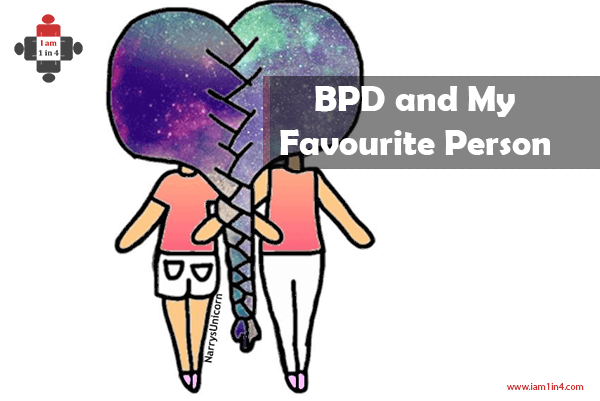 I wanted to trust her.
I wanted to trust her.
After several analyzes and tests, I was told my diagnosis. I didn't even take it seriously, didn't attach any importance. The preliminary conclusion given to me in my hands frightened me with something else - a complete discrepancy between reality and my ideas about myself. Despite all my problems, I considered myself at least an adult and reasonable. In reality, there was something unformed, lacking the skills to interact with the outside world, unaware of its own boundaries and the boundaries of those around it, entangled and split into some fragments, fragments, fragments.
I read the conclusion and tried to put it out of my head as quickly as possible, focusing on my first important goal - to stop grabbing the bottle as a cure for all problems.
The Miracle That Didn't Happen
For two years in a row, twice a week, I sat in Anna Vladimirovna's office, trying to comprehend what was happening to my life and expecting changes. I talked about our relationship with parents, friends, about the men who appeared in my life, about joyful and frightening moments for me. It seemed to me that with each visit I become better, more conscious, more balanced. But as soon as any trouble happened, I broke down again.
It seemed to me that with each visit I become better, more conscious, more balanced. But as soon as any trouble happened, I broke down again.
Illustration: Vlad Milushkin for Trade House
Over time, such breakdowns became less and less. I became interested in yoga, began to read a lot, tried to analyze everything that was happening to me, and kept diaries. I decided on the profession that I want to get, and entered the philological faculty in order to leave it six years later with a diploma in journalism.
But I preferred to bypass the most pressing questions, focusing on immediate needs and problems. Yes, my behavior changed for the better, I set myself the simplest tasks and achieved them. I began to treat alcohol more calmly, stopped seeing a potential enemy in every person, and seriously took up my studies. But I dreamed of being cured, I dreamed of a miracle that would turn my life around and make me happy. It never happened.
And in June 2009, dad died. The world really turned upside down, and then crumbled into pieces of a puzzle that had to be reassembled.
To prove that everything is not in vain
After the death of his father, regular therapy had to be stopped: there was no money. For the next eight years, I appeared in Anna Vladimirovna’s office once every few months, proving not to her, but to myself that those two years were not in vain: I can manage.
During this time, I managed to work as an HR specialist, a sales assistant, a realtor, and a reporter for a local weekly.
In 2011, at the suggestion of a close friend, I moved to Moscow. For two and a half years I was spinning in an unfamiliar city, working either as a copywriter or as a support operator for one of the mobile applications, while continuing to study. There were practically no breakdowns - the new living conditions forced me to be careful. In 2014, I finally received a diploma and got a job at the editorial office of one of the capital's newspapers.
The next three years passed in a permanent rush, anxiety and tension. Although I loved my job, it did not fit well with what was going on in my head. Vaguely remembering my diagnosis, I did not realize the real scale of the problem. Gradually all the old symptoms began to return. Again it seemed to me that the world turned against me. Ordinary work issues turned into a tragedy on a universal scale, the people around seemed either the closest friends, or enemies, waiting for the right moment to set me up. The mood rushed along the terrible amplitude from the inner ISS to the bottom of the personal Mariana Trench.
I got really scared in 2016 when I started getting drunk once every few months until I lost touch with reality, and then lashed out at people. Friends, acquaintances and colleagues gradually began to move away or even reduced communication with me to "no".
Getting to the second round
By the fall of 2017, I had become the most unbearable version of myself possible.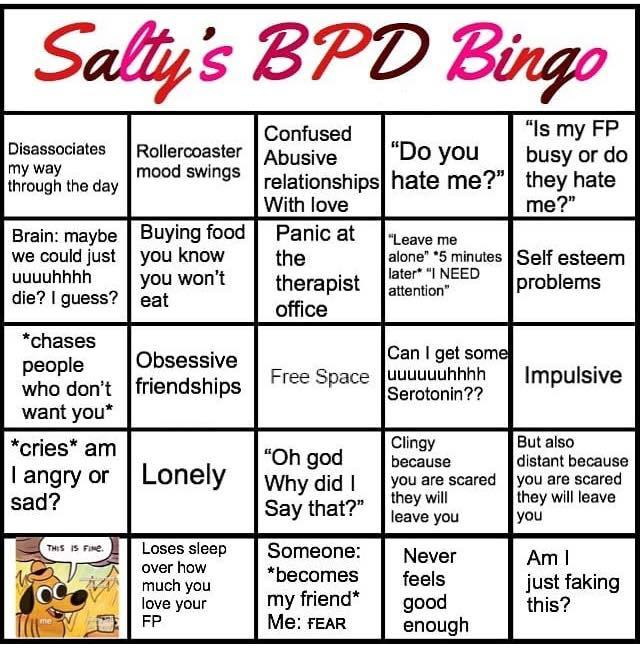 Apart from work, there is nothing left in my life. I came to the office early in the morning, and the devil knows what time I came back. Approaching our building, everything was already shrinking inside. I tried to get used to the constant screaming, rush, nervousness, lightning-fast task changes, impulsive leadership, but I never managed. Every day I exhausted myself to zero. On weekends, I either lay face down on the pillow or continued to work. I was terribly jealous of my colleagues who managed to adapt to the artificially frantic rhythm of our life, but I myself could not do that. In the end, I stopped sleeping normally - I woke up four or five times a night to feel like a weakling and a wreck in the morning, which hurts everything that can hurt. I felt weak, and it is beyond words how she annoyed me. I got more and more angry, and at some point I broke down.
Apart from work, there is nothing left in my life. I came to the office early in the morning, and the devil knows what time I came back. Approaching our building, everything was already shrinking inside. I tried to get used to the constant screaming, rush, nervousness, lightning-fast task changes, impulsive leadership, but I never managed. Every day I exhausted myself to zero. On weekends, I either lay face down on the pillow or continued to work. I was terribly jealous of my colleagues who managed to adapt to the artificially frantic rhythm of our life, but I myself could not do that. In the end, I stopped sleeping normally - I woke up four or five times a night to feel like a weakling and a wreck in the morning, which hurts everything that can hurt. I felt weak, and it is beyond words how she annoyed me. I got more and more angry, and at some point I broke down.
I yelled at people around me with or without reason. My reactions were unpredictable. Having started the day in a great mood, by lunchtime I was furious, and by the evening I felt like a small offended child. I had neither the strength nor the desire to restrain myself. It was hard to work with me, it was almost impossible to communicate. I have become a person who infuriates everything and who infuriates everyone.
I had neither the strength nor the desire to restrain myself. It was hard to work with me, it was almost impossible to communicate. I have become a person who infuriates everything and who infuriates everyone.
I failed again. Ten years after my first psychotherapy session, I returned. But now I clearly knew: you need to work with the cause, and not with the consequences. I was waiting for my old diagnosis, from which I had turned away for so long - borderline personality disorder.
Anna Vladimirovna stayed in my hometown and conducted a personal reception. I didn’t know Moscow specialists, and besides, I understood: with a new therapist, I would have to start everything from the very beginning. And I wanted to continue working with a person who knows me and whom I trust. Anna Vladimirovna met me halfway and agreed to an online consultation.
After a couple of months, I managed to find a quieter job, so that permanent jobs and stress no longer distract from the main goal - to figure out the crooked settings in my own head.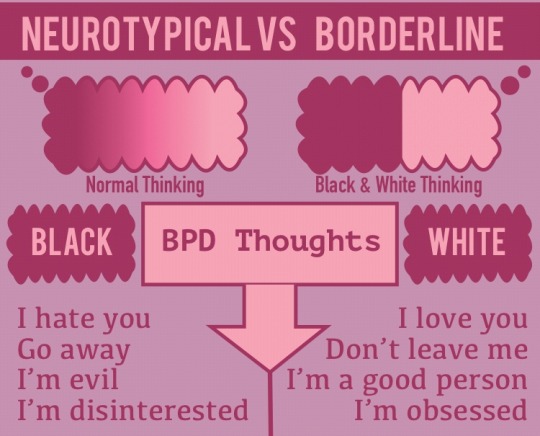
My brother, Anakin
In his guide to mental disorders for residents of the big city, Crazy! Daria Varlamova and Anton Zainiev tell how scientists from the University of Toulouse Hospital and the French Center for Applied Psychology Research found a number of symptoms of borderline personality disorder in Anakin Skywalker. Experts came to the conclusion that it was it, and not the dark side of the Force, that turned the hope of the Jedi into Darth Vader. Of course, not everyone agreed with them, but I like this version.
Borderline disorder has nine main symptoms: intolerance to loneliness, tense and contrasting relationships with others, problems with self-identification, impulsive and dangerous behavior, severe mood swings (emotional swings), poorly controlled outbursts of anger and aggression, paranoid or dissociative symptoms in a strong state stress, a constant feeling of inner emptiness and suicidal tendencies. If you find at least five signs from this list in yourself, you should see a specialist. In my case, there was a combo - all nine.
In my case, there was a combo - all nine.
At the same time, "border guards" are divided into two large groups: high-functioning and low-functioning. I am among the first. Such people can take care of themselves: get an education, find a decent job, hobbies, friends, love. But, as practice shows, if you let everything take its course, the symptoms of BPD will poison the life of both the “border guard” and his loved ones.
The situation is further complicated by the fact that there are no drugs for borderline disorder. But the good news is that there are pills for depression, anxiety, and the eating disorders that often accompany BPD. Removing them means making your life much easier. But the “borderline” itself will have to be dealt with in psychotherapy. There is no other option.
A box with slides
Anna Vladimirovna was in no hurry. Therapy for borderline disorder is a long history, averaging five to seven years. But I wanted to deal with it as soon as possible, take a risk and complete this five-year plan in three years.
I had to remember and once again live everything that is briefly described at the beginning of this text, and much more. Each memory was like a slide that had been gathering dust in a box behind me for many years, and now caught in the beams of an internal spotlight so that I could see it in detail. If anyone still thinks that this process is a pleasant pastime, I assure you: you are mistaken.
A flurry of memories, associations and images came crashing down on me. The first six months were a real test of strength. I had dreams about events ten or even twenty years ago. Suddenly, I remembered people whom I had not seen for many years and hardly ever met, and began to have exhausting conversations with them in my own head. Each time I came to the consultation with a long list of questions to discuss. It rarely included less than ten items. Fears, doubts, guilt, shame for events that have nothing to do with my current life, false memories and incorrect interpretations of the actions of people dear to me, resentment, complexes, desires, ambitions - we gradually pulled everything out of my box and mercilessly threw away the unnecessary .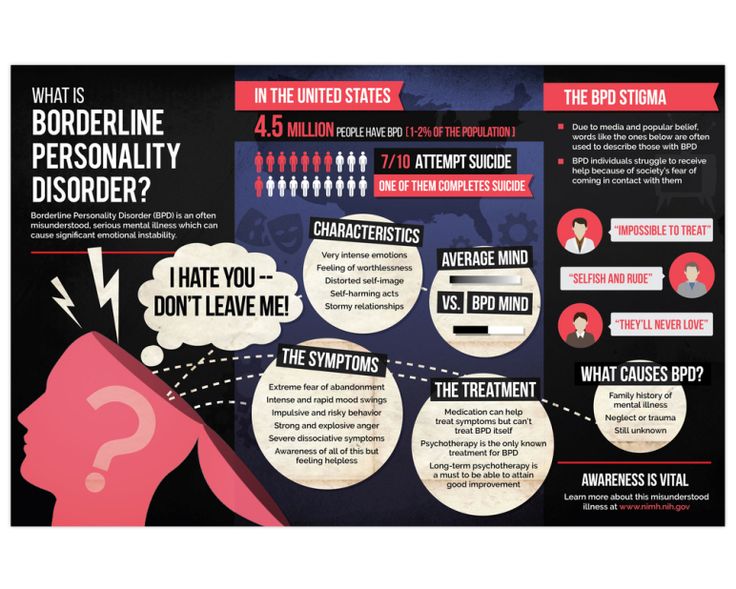 My head was buzzing and cracking at the seams, but I did not stop. I really got angry at the disorder that had plagued me for so many years. It worked, and consciousness, albeit reluctantly and with a creak, began to change.
My head was buzzing and cracking at the seams, but I did not stop. I really got angry at the disorder that had plagued me for so many years. It worked, and consciousness, albeit reluctantly and with a creak, began to change.
It didn't work out smoothly. At times I was angry with Anna Vladimirovna, disappointed in what we were doing, I was ready to give up everything, despaired, but then I pulled myself together and moved on.
One of the most serious things that I had to realize during the first year of our work is that my “borderline” will stay with me forever. This is not a disease, but a feature of the development of the psyche. All I can do is accept it, study it and learn how to use this tool correctly.
Illustration: Vlad Milushkin for TD
The second conclusion came as a surprise: being a "border guard" revealed a number of advantages that I had not noticed before. Behind the nine monster symptoms was the ability to devote oneself to one's favorite business with one's head, to receive impressions of that brightness and intensity that are familiar only to teenagers, sensitivity to changes in the mood of others, a lot of energy that just needs to be channeled into a constructive channel. And this is not a complete list.
And this is not a complete list.
The third acquisition was awareness. Gradually, I learned to set my own and respect other people's boundaries, recognize emotions and manage outbursts of anger, not demand far-fetched "ideality" from myself and those around me, respect my real self and accept people as they are. I finally began to ask myself what I really want, and not to participate in "hidden contracts", the conditions of which I was not initiated. I also realized that if there is too much aggression inside, then it's time to go to the pool or the gym. The main thing is without fanaticism.
Where there was fear, there will be nothing...*
At the end of Runaway Bride, Julia Roberts' character confesses: "I love eggs benedict and hate them in all other ways!" This phrase comes to mind every time I think about what therapy has led me to.
December 2019. I am thirty two years old. I do what I love most in the world - I create texts and tell stories that, perhaps, change something in the world around me. And I don't want to do anything else.
And I don't want to do anything else.
I am an ordinary city dweller with a daily hustle on the subway, a job I love, a few interesting projects, an annual membership to the fitness center, a love of books, music, walking, coffee in pleasant company and a mortgage: this year I decided it was time to get my own home, where no one will ever tell me: "There is nothing of yours here."
For twelve years I have known about my borderline disorder, but I am no longer afraid of it, just as I am not afraid to talk about it openly, for example, in my telegram channel "Borderpost". This is not a brand. Yes, I am a highly functional "border guard". It is a fact. But this is not the main thing.
It is much more important to understand that I am an accomplished journalist, a beloved daughter and a good friend, according to those who spent many years with me. Among my friends there are people with whom we have known for more than ten and even fifteen years. There are those who came into my life relatively recently, but, apparently, do not plan to leave it.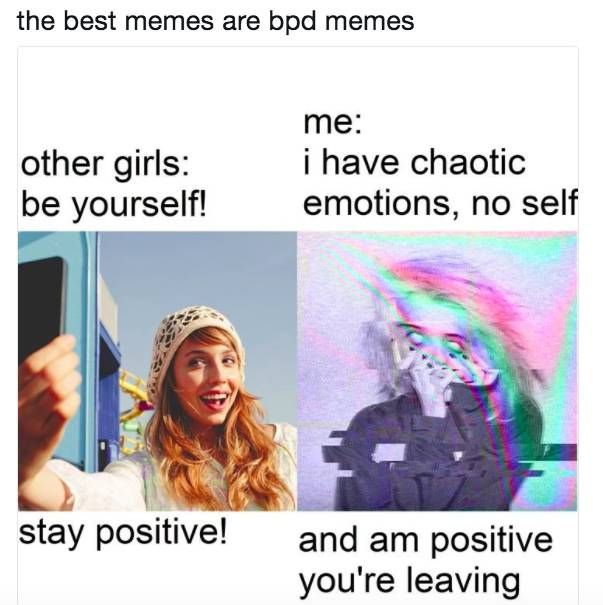 The loneliness that I feared for so long is a phantom, fiction, self-deception. It's time to stop believing in ghosts.
The loneliness that I feared for so long is a phantom, fiction, self-deception. It's time to stop believing in ghosts.
I can't say that I went through my box of slides to the end. I think there are a couple more unpleasant surprises waiting for me at the bottom, but I already know what to do with them. I am no longer afraid of the past, and I am not ashamed of it. It was what it was. I don't have a time machine to change something in it. But I know where I once drove myself, how to get out of there and how to cut off all the ways back. By the way, I no longer have problems with alcohol - I don't want to either forget or run away.
Fear is gone, leaving room for a keen interest in everything that surrounds me. Following him, the emotional swing also left, giving the opportunity to feel the balance and ordinary calmness.
No matter how much time passes, my emotions will not lose their brightness. I will experience every event with full dedication. But now I know that all experiences are temporary.
